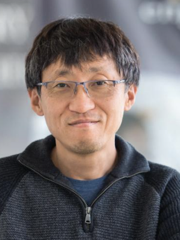Abstract
Cell is the smallest living unit and makes up living organisms. In multicelluar organisms, cells communicate with each other to coordinate complex cellular functions. Hence, deciphering cell signaling is vital to understanding complex biological processes underlying multicellular organisms. Emergence of transcriptional profiling at single cell level (scRNAseq) has enabled the investigation of cellular processes at unprecedented level. It has also inspired the development of computational methods to utilize scRNAseq data to discover novel cell types, investigate gene regulation, and decipher cell-cell communication. More recent development of spatial transcriptomic profiling (ST) enabled the transcriptional profiling at single cell or close to single cell level together with spatial information. This talk will first briefly introduce single cell transcriptomics and spatial transcriptomics. A recent study of pulmonary hypertension (PAH) to identify differential pathways between PAH patients naive to treatment and with treatment using scRNAseq will be discussed. Secondly, a new computational approach utilizing ST to discover cell signaling with spatial coordination will be described.
Speaker Bio
Dr. Seungchan Kim is a Chief Scientist and Executive Professor at the Department of Electrical and Computer Engineering and the Director of the CRI Center for Computational Systems Biology at the Prairie View A&M University (PVAMU). Prior to this appointment, he was the Head of Biocomputing Unit and an Associate Professor at Integrated Cancer Genomics Division of Translational Genomics Research Institute (TGen). He was one of the founding faculty members of TGen, founded in 2002, by Dr. Trent, then-Scientific Director of the National Human Genome Research Institute at the National Institutes of Health, leading computational systems biology research at the institute. He was also an Assistant Professor in the School of Computing, Informatics, Decision Systems Engineering (CIDSE) at the Arizona State University from 2004 till 2011. Dr. Kim received B.S. and M.S. degrees in Agriculture Engineering from the Seoul National University, and Ph.D. in Electrical Engineering from the Texas A&M University. He also got his post-doctoral training at the Cancer Genetics Branch of National Human Genome Research Institute.
Dr. Kim’s research interests include: 1) mathematical modeling of genetic regulatory networks, 2) development of computational methods to analyze multitude of high throughput multi-omics data to identify disease biomarkers, and 3) computational models to diagnose patients or predict patient outcomes, for example, disease subtypes or drug response. His studies have had a large influence on the development of computational tools to study underlying mechanisms for cancer development and better understand the molecular mechanisms behind cancer biology and biological systems.
